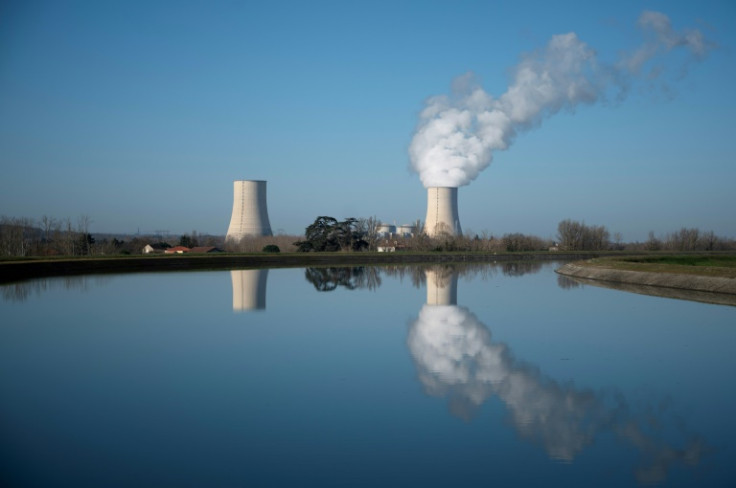
The UK nuclear sector is set for a major overhaul as the UK government has announced the biggest expansion of nuclear power to reduce energy bills and strengthen the energy security of the country for the next 70 years.
The new roadmap announced by the Department for Energy Security and Net Zero on January 11 is part of the Great British Nuclear Programme launched last year. The UK government has set the roadmap for a step-by-step increase of nuclear power generation in the country by four times to reach 24GW in 2050.
The nuclear roadmap includes plans to build new nuclear power stations like Hinkley C and Sizewell C to power six million UK homes. The UK Prime Minister Rishi Sunak's government is building on the recently launched HALEU nuclear fuel generation programme to counter Russian fuel with this new announcement.
Together, both these plans will bolster the UK economy and the UK energy security as it create more UK jobs across the country and lowers the energy bills of UK homes reeling under the cost-of-living crisis.
In the last two years since the Russian Invasion of Ukraine, the UK government has doubled down its energy supply from foreign countries to make the UK energy sector more independent. The civil nuclear roadmap provides the necessary direction for that.
According to the nuclear roadmap, Britain will increase its nuclear power supply from clean, reliable and abundant energy till it reaches 24 gigawatts by 2050. This four times jump in nuclear power supply will fulfil a quarter energy needs of UK electricity.
A Nuclear Skills Strategy Group analysis suggests that the UK workforce in the civil and defence nuclear industry has to double in the next 20 years, adding 80,000 UK jobs so that the 24GW target can be fulfilled. The Nuclear Skills Taskforce will address this demand of the £6 billion worth of the UK nuclear industry with new apprenticeships for fresh graduates and mid-careerists with relevant skills and expertise.
While the roadmap shows the new nuclear fuel generated through the HALEU programme will be used to return uranium conversion to the Springfields nuclear fuel site, the UK government also has plans to secure three to seven gigawatts of investment decisions on nuclear projects, every five years, between 2030 and 2044.
The new nuclear roadmap makes way for better regulations
Revealing the new civilian nuclear roadmap, UK Prime Minister Rishi Sunak said: "Nuclear is the perfect antidote to the energy challenges facing Britain - it's green, cheaper in the long term and will ensure the UK's energy security for the long term."
"This is the right long-term decision and is the next step in our commitment to nuclear power, which puts us on course to achieve net zero by 2050 in a measured and sustainable way," the UK PM added.
Meanwhile, the Secretary of State for Energy Security and Net Zero, Claire Coutinho, said: "We're making the biggest investment in domestic nuclear energy in 70 years. Our £300 million plan to produce advanced nuclear fuel in the UK will supply nuclear plants at home and overseas – further weakening the Kremlin's grip on global energy markets."
"From large gigawatt projects to small modular reactors, the UK's wider nuclear revival will quadruple our nuclear capacity by 2050 – helping to power Britain from Britain," the Energy Security minister added.
The UK government plans to streamline the new power station development process by introducing smarter and faster regulations including how UK regulators assess nuclear projects. UK regulators would be allowed to assess nuclear projects from the designing step itself and they can do it through the same technology used by overseas regulators.
The Sunak government has also drawn a plan to conduct a hackathon with the best minds from the UK nuclear industry to speed up new nuclear projects without compromising on safety and security.
The UK government also published two consultations regarding approaches to future nuclear power stations and on the prospect of private investments in advanced nuclear projects. This is likely to draw investment in the UK nuclear sector as developers can identify suitable sites instead of relying on the right designated sites given by the government.
The UK Nuclear Minister Andrew Bowie said: "The government's investment in nuclear will ensure the UK remains at the forefront of technological developments."
"Our plans will give investors the confidence to back new UK projects, with a simpler process for locating new schemes and clear support for private sector companies developing innovative new technologies", said Bowie.
"The roadmap will also confirm plans for decommissioning to make sure they remain suitable for new nuclear technologies and protect future generations from bearing the costs," Bowie added.
Tom Greatrex, Chief Executive of the Nuclear Industry Association, said: "Allowing developers to engage with the government about Regulated Asset Base funding models should also make it cheaper to finance projects, cutting costs to the consumer.
"Decisions on 3-7GW in each five years provide the greater clarity and predictability, which in turn enables supply chain investment and more UK content in the future fleet."
"The commitments to maximise our use of regulatory assessments already undertaken overseas will help get innovative reactor designs into construction faster and reduce the duplication in regulatory activity that eats up time for no additional benefit," Greatrex added.







